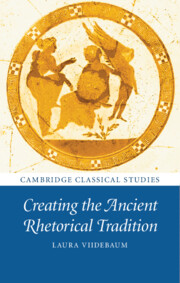
-
- You have access
- Open access
- Cited by 3
-
Cited byCrossref Citations
This Book has been cited by the following publications. This list is generated based on data provided by Crossref.
2022. Books Received 72.2. The Classical Review, Vol. 72, Issue. 2, p. 751.
Enos, Richard Leo 2022. A Site-Perspective on the Second Sophistic of the near East and Its Impact on the History of Rhetoric: An Overview. Humanities, Vol. 11, Issue. 6, p. 154.
Monson, Andrew 2023. Taxing Wealth in the Just City: Cicero and the Roman Census. Journal of Roman Studies, Vol. 113, Issue. , p. 1.
- Publisher:
- Cambridge University Press
- Online publication date:
- November 2021
- Print publication year:
- 2021
- Online ISBN:
- 9781108873956
- Creative Commons:
-
This content is Open Access and distributed under the terms of the Creative Commons Attribution licence CC-BY-NC-ND 4.0 https://creativecommons.org/creativelicenses




